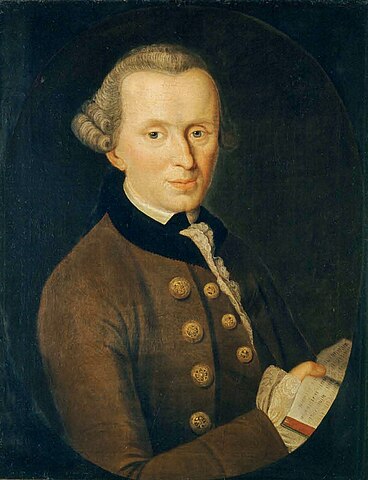Conclusion To Series On Individuality
A stupid despot may constrain his slaves with iron chains; but a true politician binds them even more strongly by the chain of their own ideas; it is at the stable point of reason that he secures the end of the chain; this link is all the stronger in that we do not know of what it is made and we believe it to be our own work; despair and time eat away the bonds of iron and steel, but they are powerless against the habitual union of ideas, they can only tighten it still more; and on the soft fibres of the brain is founded the unshakable base of the soundest of Empires’. M. Servan, Le Soldat Citoyen, 1780, quoted in Foucault, Michel. Discipline and Punish: The Birth of the Prison, Pp. 102-103 Kindle Edition.
[The attitudes of Trump voters and non-voters] are created by their experiences in their environment. The people shaping those environment are the truly contemptible shitheads. Me.
The series was motivated by the idea that the books I’ve read over the years and the writing and thinking I’ve done here might give me some insight into Trump voters. Not the racists, the Christian Nationalists, the misogynysts, the homophobes, the Nazis, the nihilists and the other freaks, their motivation is obvious. It’s the regular folk who think they’re decent people I want to understand.
I had a tentative idea, an image of Trump voters trooping to the polls like so many soldiers. That led me to think about the nature of individuality, because soldiers surrender large parts of their nature to achieve what they think is a higher good.
I suppose others might see Harris voters the same way. That’s what the Repub operatives say. But it’s stupid. There is no information bubble telling regular Democrats what to think. The Democratic Party isn’t capable of telling anyone how to think about the world around us and the problems we face.
Democratic voters have to work out a view of reality based on a range of sources, from Billionaire Media to blogs to social media, teachers, friends, family, books etc. There are strategies for that, but very few, if any, just take the word of a tiny group of professionals, especially Democratic politicians, for anything.
Trump voters are immersed in the world view created and maintained by creepy billionaire right-wing donors, ratfuckers, enablers in the business and legal communities, grifters and loons. We see it all the time. We listen to our parents who have crossed the line into Foxworld. We hear it from cousins convinced the MMR vaccine is dangerous. We see it in stories like that of Ryleigh Cooper.
All of these filthy rich actors and their enablers are trying to kill our political community. They use words to veil intentions and their deeds are brutal. See The Human Condition by Hannah Arendt, p. 200, Kindle Edition. They’re succeeding at destroying, but they have no replacement and people are suffering. Ask Ryleigh Cooper and her family.
I don’t think there’s a single explanation for why people voted for Trump. That was a foolish idea. No matter the “reason” they give, it’s incomprehensible to me that anyone would vote for this deeply repulsive creep.
Conclusion to series
Immanuel Kant wrote a four-page essay titled Answer To The Question: What Is Enlightenment? In 1784. Here’s a readable free translation by Ted Humphrey, made available by the New York City Public Library. Here are the opening paragraphs.
1. Enlightenment is man’s emergence from his self-imposed immaturity.Immaturity is the inability to use one’s understanding without guidance from another. This immaturity is self-imposed when its cause lies not in lack of understanding, but in lack of resolve and courage to use it without guidance from another. Sapere Aude! “Have courage to use your own understanding!”–that is the motto of enlightenment.
2. Laziness and cowardice are the reasons why so great a proportion of men, long after nature has released them from alien guidance …nonetheless gladly remain in lifelong immaturity, and why it is so easy for others to establish themselves as their guardians.
It is so easy to be immature. If I have a book to serve as my understanding, a pastor to serve as my conscience, a physician to determine my diet for me, and so on, I need not exert myself at all. I need not think, if only I can pay: others will readily undertake the irksome work for me.
The guardians who have so benevolently taken over the supervision of men have carefully seen to it that the far greatest part of them (including the entire fair sex) regard taking the step to maturity as very dangerous, not to mention difficult.
Having first made their domestic livestock dumb, and having carefully made sure that these docile creatures will not take a single step without the go-cart to which they are harnessed, these guardians then show them the danger that threatens them, should they attempt to walk alone. Now this danger is not actually so great, for after falling a few times they would in the end certainly learn to walk; but an example of this kind makes men timid and usually frightens them out of all further attempts. Fn omitted; my formatting.
Side notes: Guidance probably means something more like instruction or direction. The word go-cart is probably better translated as something like pony-cart. I left the misogyny in, but should I have deleted it?
Kant’s guardians are a big part of the problem, just as Servan, Kant, Arendt, Bourdieu, Foucault, and many others have said. But there’s nothing to prevent any of the ridden from thinking for themselves. Nothing, says Kant, nothing but laziness and cowardice. It’s too much trouble. I might get it wrong. I don’t want to get cross-ways with my neighbor.
I’m not saying everyone has to spend hours and weeks and years studying things. But. Billions of people have taken the Covid vaccines. The incidence of death is nearly zero. The incidence of serious complications isn’t much greater. But lots of people listen to loons on social media. They don’t perform a single-step thought process to see that it’s safer to take the vaccine than risk illness and death from the disease. I think that’s what Kant means when he tells us to use our own understanding.
The billionaires and their cronies who created this bubble of non-thought, are the guardians Kant is talking about. They are riding their herd just as he said. and it’s tough to tell one individual in a herd from another.
Enough. I am a child of the Enlightenment. I’ll leave this series with this aphorism from David Hume, an Enlightenment philosopher. Here’s a link for context.
A wise man, therefore, proportions his belief to the evidence.






